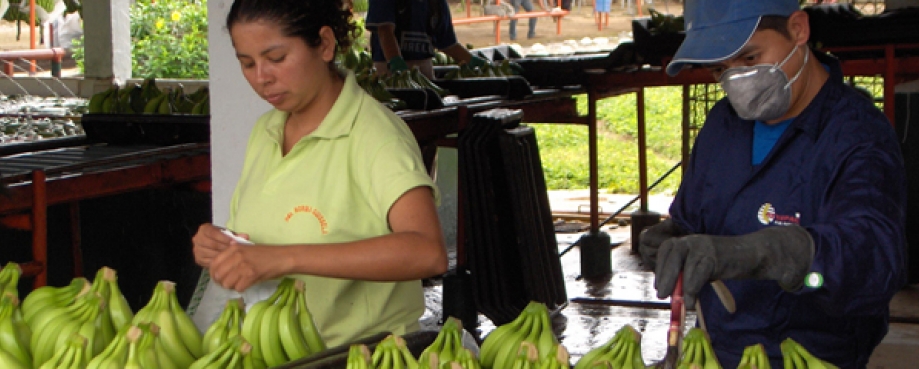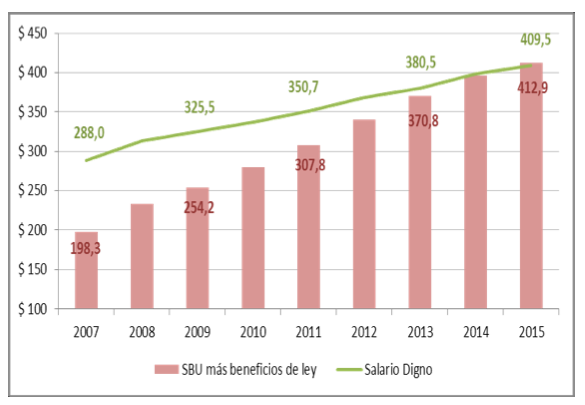
Ecuador usually only makes the headlines in Europe for the famous 'refugee' in its London embassy. But when it comes to making living wages a reality for all salaried workers, this country provides a model that deserves to be news around the world.
The Ecuadorian government led by President Rafael Correa has achieved what no other country has even set out to achieve. In the space of 8 years since coming to power, the legal minimum wage has been increased well beyond the rise in the cost of living. The explicit goal to close the gap between the minimum wage and a living wage was reached this year.
The new constitution of 2008 was born and approved in a process of popular participation. It includes an article that states that:
Remuneration will be fair, with a living wage that covers at least the needs of the working person as well as those of his/her family [...]
Thanks to successive hikes in the minimum wage, the average household of 1.6 earners can now purchase a basket of household goods and services. The cost of this basket is published monthly and is used as a proxy for a living wage.
We can all argue about the different methodologies and benchmarks that should be used to determine what a living wage is. But surely what matters most are the concrete actions taken by employers, trade unions and governments.
For 200,000 or more banana workers in Ecuador, the action of government supported by trade unions in the sector has meant a move from the poverty wages that prevailed only a decade ago to a more decent level of remuneration. The fact that this applies to all waged workers means that purchasing power across the economy has increased significantly. That a range of other policies to extend healthcare coverage, to end labour sub-contracting and to reduce employment discrimination have also been put in place shows that living wages should not exist in isolation from other policies that improve the quality of work.
Trade unions and employers now have the challenge and opportunity to improve on this base-line and create the conditions for truly decent work. Major problems still exist, especially in hazardous sectors like the banana or cut flower industries. These problems cannot all be resolved by government policy.
If the Ecuador example of setting a goal to close the gap between minimum wage and living wage could be shared with – and taken up by - other governments around the world, I'm sure we could advance the cause of ethical trade in game-changing ways. Could the governments of Myanmar, Bangladesh and Cambodia, for example, not be persuaded of the value of setting a goal for 'closing the gap' for the sake of millions of textile workers?
Nor have higher wages in Ecuador meant less jobs. The country has one of the lowest unemployment levels in the Americas.
No, the issue comes back to one of the basic tenets of good policymaking: where there's a political will, there's a way.

